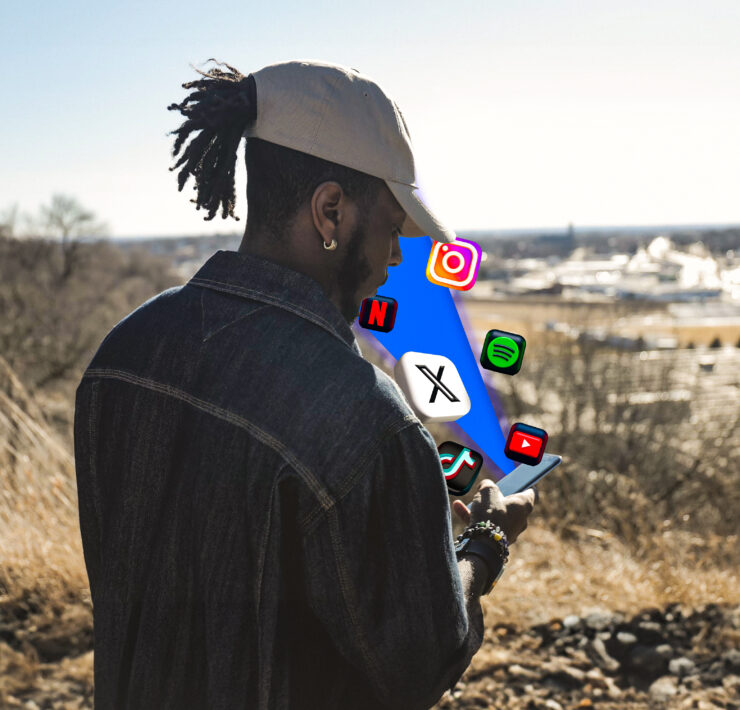If you don’t pay much attention to the news, Mark Zuckerberg’s digital stroll to a Connect conference to explain the next era of the company he built probably sounded pretty peachy. Sure, Zuckerberg isn’t the most charismatic presence in the world, but the future he wants to build sounds fascinating. In his pitch, Meta — the new company name — is our gateway to a new virtual environment. In this new augmented world, the barrier between our online world and the rest of our lives grows flimsier than ever. Zuckerberg seems confident that the “virtual reality” envisioned in scifi movies is on the horizon, and he wants to be at the forefront of it.
There are lots of ethics for futurists to consider here, and RELEVANT has done so in the past. But however you feel about our fast approaching digital reality, one thing is very clear: Facebook should have nothing to do with it.
Because if you do pay attention to what’s in the news, you know why this announcement is landing now. The past few weeks have been a non-stop crisis for everyone at the company. A whistleblower went public with accusations that Facebook leadership is well aware of the damage their platform has caused, but showed little interest in rectifying it. Even as internal studies revealed that Facebook has played a significant role in the deterioration of our collective mental health, the erosion of our relationships, the spread of dangerous conspiracy theories and the overall crumbling of democracy, Zuckerberg was hesitant to do anything that would jeopardize the bottom line. This remained true even as it was clear that Facebook was a central player in eroding faith the vaccine, forcing the U.S. to fight the pandemic with one arm tied behind its back.
Thousands of leaked documents, known “The Facebook Papers,” have shown how much the company knows about its audience, and how hesitant it is to use that knowledge to blunt the negative effect it’s having on the world. The company reportedly breathed a sigh of relief in November, when voting day came and went with little drama. But that relief proved to be premature on January 6, and further reports have shown how key Facebook was to the planning of the U.S. Capitol riots.
But it’s not just the U.S.
Facebook has been used in Myanmar, where the military saw it as a tool to facilitate genocidal violence. The same thing happened in Ethiopia, where Vice News reports that an outbreak of violence was “supercharged by the almost-instant and widespread sharing of hate speech and incitement to violence on Facebook, which whipped up people’s anger.”
Or read Jamelle Bouie’s brief summary of the ways Facebook has been used by authoritarian leaders over the world.
In Russia, Vladimir Putin’s allies use Facebook and other social media to harass critics and spread disinformation on behalf of the regime. In India, Vaidhyanathan notes, Narendra Modi’s Bharatiya Janata Party used Facebook to “rile up anti-Muslim passions and channel people to the polls” as well as “destroy the reputations of journalists, civil society activists, critics of anti-Islam policies, and political enemies.” And in the Philippines, Rodrigo Duterte leveraged Facebook for “virulent character assassination, threats, and harassment” as well as propaganda in service of vigilantism and violent nationalism.
You wouldn’t know any of this to watch Zuckerberg’s Meta rollout, and that’s obviously by design. If Facebook’s getting bad press, the smart corporate thing to do is change the conversation. “The future won’t be built on its own,” Zuckerberg said. “It will be built by those who are willing to stand up and say, ‘This is the future we want.'” We’re too busy focusing on the future to talk about the present, let alone the recent past, right?
But this is why we must resist this attempt to take over even more of our daily lives. Facebook’s current level of influence over our lives has proved disastrous. Why should we trust them with more of it? Has any of the company’s moves over the last few years demonstrated a level of reflection or repentance even close to commensurate with the actual damage it has done?
More than likely, none of these thoughts are new to you. You’ve probably considered leaving Facebook or, at least, taking a break. Maybe you’ve even posted about how much you don’t like Facebook. You might have reasons for disliking it that I haven’t brought up yet (there are plenty to choose from). But all of that amounts to nothing as long as Facebook doesn’t see a shift in how many people use its platform. The corporate board is most certainly upset about all the bad press but as long as people keep coming to the site, why should they see any of it as any more than a bump in the road?
Statistically speaking, you — the person reading this — came to this article from Facebook. Or possibly from Instagram, which amounts to the same thing. News organizations have to share their content on Facebook, because that’s where readers are. You have to go to Facebook, because that’s where your friends and family are — or where you find something to read. And you don’t need to pour over the Facebook Papers to know how this social media platform has made you feel. Maybe you’ve gotten in ugly fights with friends or family. Maybe you’ve spent too much time scrolling through posts that don’t actually make you feel any better. Maybe you scroll Instagram, which actively makes you feel worse — comparing yourself to the impossible physical and professional standards of people you do not know. Maybe you’ve connected with content or people you know aren’t good for you. Maybe it’s opened up a side of yourself you’re not proud of.
These things are probably not all true but if any of them are, think about it: do the benefits of Facebook really outweigh the negatives? If your answer to that question is “no,” then it starts with you. No doubt, the digital world that’s coming our way is inevitable and abstaining altogether is probably not a realistic option for most of us. But what Zuckerberg said is true: the future will be built by those who are willing to stand up and say, “this is the future we want.”
So why don’t we stand up and say that Facebook shouldn’t be a part of that future?























